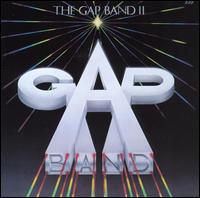| # | Title | Writer(s) | Length |
|---|
| 1. | "Steppin' (Out)" | Charlie Wilson, Lonnie Simmons, Ronnie Wilson | 4:25 |
| 2. | "No Hiding Place" | Charlie Wilson, Lonnie Simmons, Ronnie Wilson | 5:34 |
| 3. | "I Don't Believe You Want to Get Up and Dance (Oops!)" | Charlie Wilson, Lonnie Simmons, Robert Wilson, Ronnie Wilson, Rudolph Taylor | 8:39 |
| 4. | "Who Do You Call" | Charlie Wilson, Lonnie Simmons, Robert Wilson, Ronnie Wilson | 4:57 |
| 5. | "You Are My High" | Charlie Wilson, Johnsye Smith, Ronnie Wilson | 5:38 |
| 6. | "Party Lights" | Charlie Wilson, Lonnie Simmons, Ronnie Wilson, Rudolph Taylor | 3:54 |
| 7. | "The Boys Are Back in Town" | Charlie Wilson, Malvin Dino Vice, Lonnie Simmons | 5:45 |
